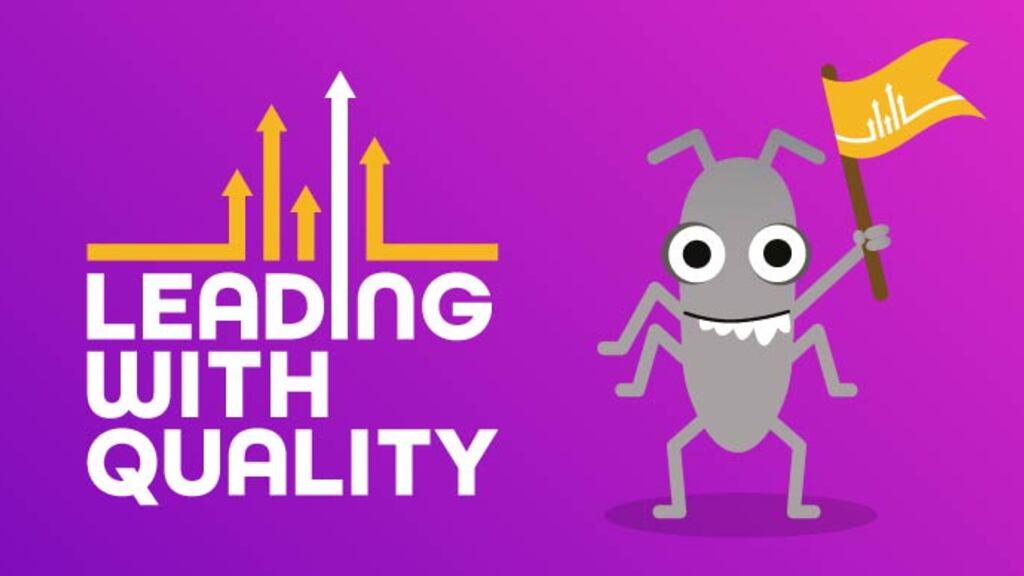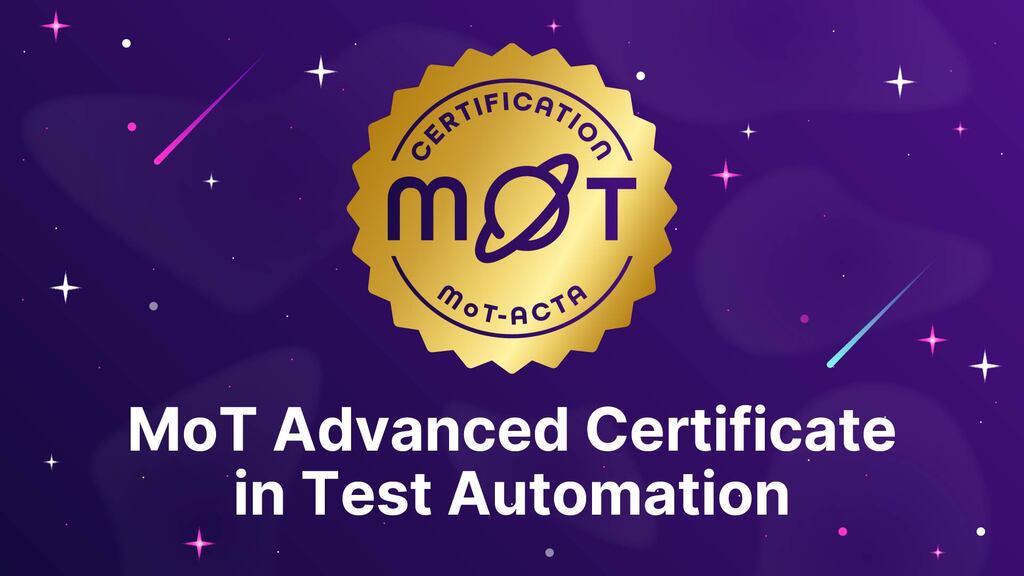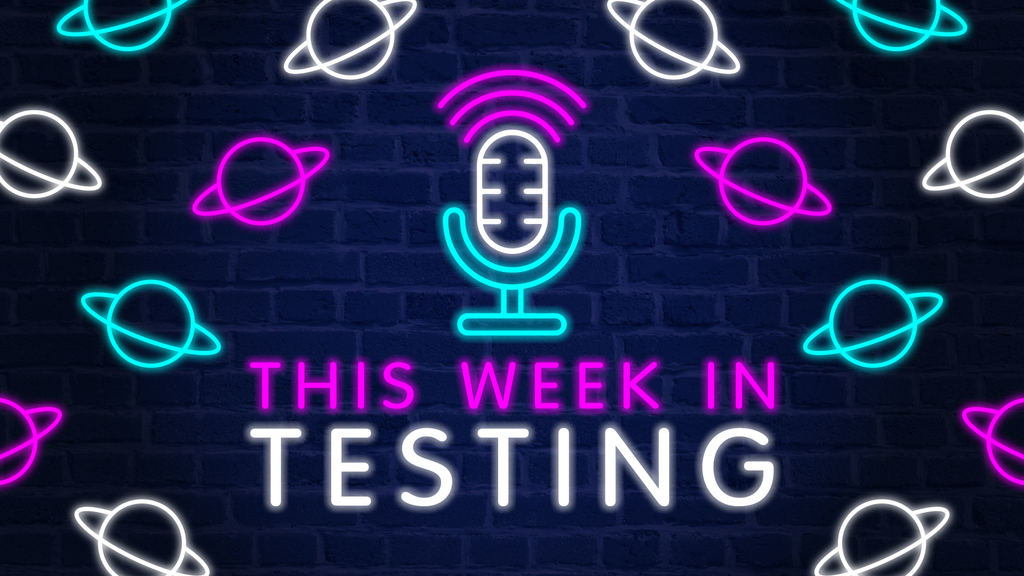Ministry of Testing is a place of opportunities, and so it's the perfect place to share my very first article. I was both honoured and intimidated when Simon Tomes encouraged me to share my journey into software testing with the community. But I'm happy to do so.
This article isn’t a guide on how to launch a software testing career. Instead, it’s my personal story of how I went about it. I hope that it encourages anyone who feels stuck or uncertain in their path. If you’ve ever struggled to find your place in tech or to trust your own progress, I hope my story will resonate with you.
A silver lining to the COVID lockdown: online learning
Without further ado, let’s go back to 2020! COVID had just hit the headlines, and the first lockdown kept people at home for a few weeks. I left my job at a climbing gym to join my partner in another city. Luckily, I arrived right before the lockdown went into effect, and I stayed at my partner’s place. During this unstable time, my partner convinced me to become a web developer.
So I started taking free online lessons. I waited for the lockdown to end so I could start a nine-month course in web and mobile development through a government program for job seekers. (If you're familiar with web development, you know that nine months isn't an especially long time to cover both front-end and back-end development from scratch.) To be eligible for the final certification, which would be granted by the Ministry of Education, we had to complete a real-world project and present it to a jury of two independent professionals. To fulfil this requirement, I took on an internship at a company where I worked on a project that became the foundation of my certification exam. This was no joke!
An unexpected detour: developing automated tests
That’s where things got tricky and exciting at the same time! The certification required a deliverable that included both front-end and back-end development, so I started my internship with that goal in mind.
But something unexpected happened along the way. The company where I was interning naturally wanted my contribution to serve their actual business needs. At the time, they had no automated tests in place, so their lead developer asked me to create automated tests for one of their projects. I was a little confused by the request, whose aim and scope of work wasn't what I thought it would be. But it also appealed to me.
I worried about how the built project of test automation would align with the certification requirements. Still, I dove into the work. It was difficult. It was uncomfortable. I got stuck many times. I felt frustrated at moments. But, it was also incredibly enriching, and I learned so much. I rolled up my sleeves and dug into topics we had only briefly touched on during training. I was even responsible for identifying what to test and how.
In three weeks, I familiarised myself with the codebase, gained a solid understanding of the business, reflected on potential risks, estimated what I could realistically achieve in the time I had, and decided to test the API responsible for user management. I learned how to test an API and how to use a new framework. Finally, I built a test suite to validate user input and verify system responses.
And guess what? I found a bug! My very first bug in a professional setting. It wasn’t anything dramatic: the defect was that a user with owner rights could register someone with a first name, last name, or email address made up only of white space. But it felt so rewarding. I was genuinely happy to have helped improve their product, even in a small way.
A big disappointment
On that sweet note, I created the formal project portfolio required for the exam, documenting the full scope of my work, and prepared for the presentation. I arrived at the exam without complete confidence in my development skills. But I still was hopeful that the jury would see the value I brought to the business.
It went exactly the opposite way. The two jury members overlooked the effort and thought that I had put into building the automated tests. Instead, they focused almost entirely on the front-end part of the project, which was the part about which I had the lowest confidence. Since the original project proposition didn't include a front-end interface, the lead developer and I had invented a loosely justified use case simply to meet the expected exam format. I built the front end according to that use case, but the reasoning behind it was shaky, and the jury sensed that. They pressed me with questions about the mock-ups and UI, and seemed to doubt the authenticity of what I had done.
At that point, I lost much of my self-control. I didn’t fight to prove that I had the required front-end skills. Instead, I naively believed that the examiners would recognise my willingness and ability to learn. These are qualities I believe make me a strong professional.
When I found out that I hadn't obtained the certification, I was very angry. I remember shouting in despair when I received my results. It sounds dramatic, I concede that. But I couldn't fathom how, after all the effort I put in, all the months spent working on new concepts and pushing myself out of my comfort zone, I'd wound up with what appeared to be a failure.
A fresh start in a completely different place
That’s where my software testing journey nearly came to a halt! But don’t worry: the story doesn’t end there. Otherwise, I wouldn’t be here to tell you about it.
What followed this distressing experience wasn’t a triumphant comeback, but something quieter, and ultimately more meaningful. I didn’t return to tech right away. Instead, I stepped into a different world, and from there, slowly began to understand what had really happened and how I wanted to move forward.
I started working as a guide for children up to three years old at a Montessori Children’s House. When I began, I didn’t have any formal teaching or guidance certification. But the directress saw something in me: the philosophy already living within me, the willingness to learn, and the ability to adapt. Because of my lack of self-confidence, stepping into a leadership role without prior training was deeply challenging. But it also proved to be enlightening. That experience taught me that growth isn’t about credentials. It's about showing up, learning, and trusting yourself.
Reflecting on my journey, and a return to software testing
Another, more painful realisation came quite recently, as I reflected on my failed certification exam. I saw clearly how I had sabotaged myself: I wasn’t able to accurately assess my own development skills, and that led me to rely on my assumptions about the jury’s kindness and fairness instead of standing my ground and defending my work. Then, I sabotaged myself a second time when I refused to retake the exam, even though I had the chance. I felt too humiliated by the failure to try again.
But all these experiences, both affirming and painful, worked together to shape a clearer picture of who I am. After two years working at Montessori, I realised I needed a better work-life balance. I wanted a job I could do from home. That’s when I remembered my internship and the sense of joy and accomplishment it had given me.
With a fresh mindset, I decided to give software development another try. But this time, I approached it in the way that felt most natural to me: through testing. So I enrolled in a software testing training program and set out to obtain a certification. And here I am!
Finding support in the community
As I returned to software testing, I started looking for resources to deepen my understanding. While researching exploratory testing online, I came across the Ministry of Testing community. I tuned into an episode of This Week in Testing, not knowing what to expect, and ended up getting on stage to ask a question. The response I received was incredibly kind and helpful. I was surprised by how thoughtful and generous the advice was. From the start, I was struck by how welcoming and encouraging the community felt. The people I’ve met through MoT have been genuinely supportive, patient, empathetic, and full of insight.
Later, I was thrilled to begin studying for the MoT STEC (Software Testing Essentials Certification), which I was fortunate to access through their scholarship fund! I’ve been working through it at my own pace, and it’s already helped me revisit the fundamentals and build a broader, more grounded understanding of what testing is really about.
However, what stands out to me the most about MoT is how deeply the community believes in its people. Whether you’re just starting out or rediscovering your path, they have a way of seeing your potential and creating space for you to grow. I’ve felt it myself through their encouragement, through this very writing opportunity, and through the small but powerful moments of connection I’ve had along the way.
To wrap up
One thing I’ve learned from all of this is how much your self-perception matters. If you don’t take time to reflect honestly on both your achievements and your failures, it’s hard to move forward with clarity. I spent a long time stuck in self-doubt, hoping others would see my potential, when what I really needed was to recognise it in myself.
So if you’re feeling lost or discouraged, maybe start there. Try to see yourself more clearly. Notice your strengths, be honest about your gaps, and stay open to the chances that come your way. And above all, surround yourself with positive and encouraging people.
For more information
- Taking your first steps in software testing, Rahul Parwal
- Setting Sail into the Great Unknown: How I Got Started in Testing from a Non-technical Background, Mike Clarke
- How Ministry of Testing Started My Performance Testing Journey, Ali Hill
- Ministry of Testing Podcast: This Week in Testing
- Ministry of Testing Scholarship





